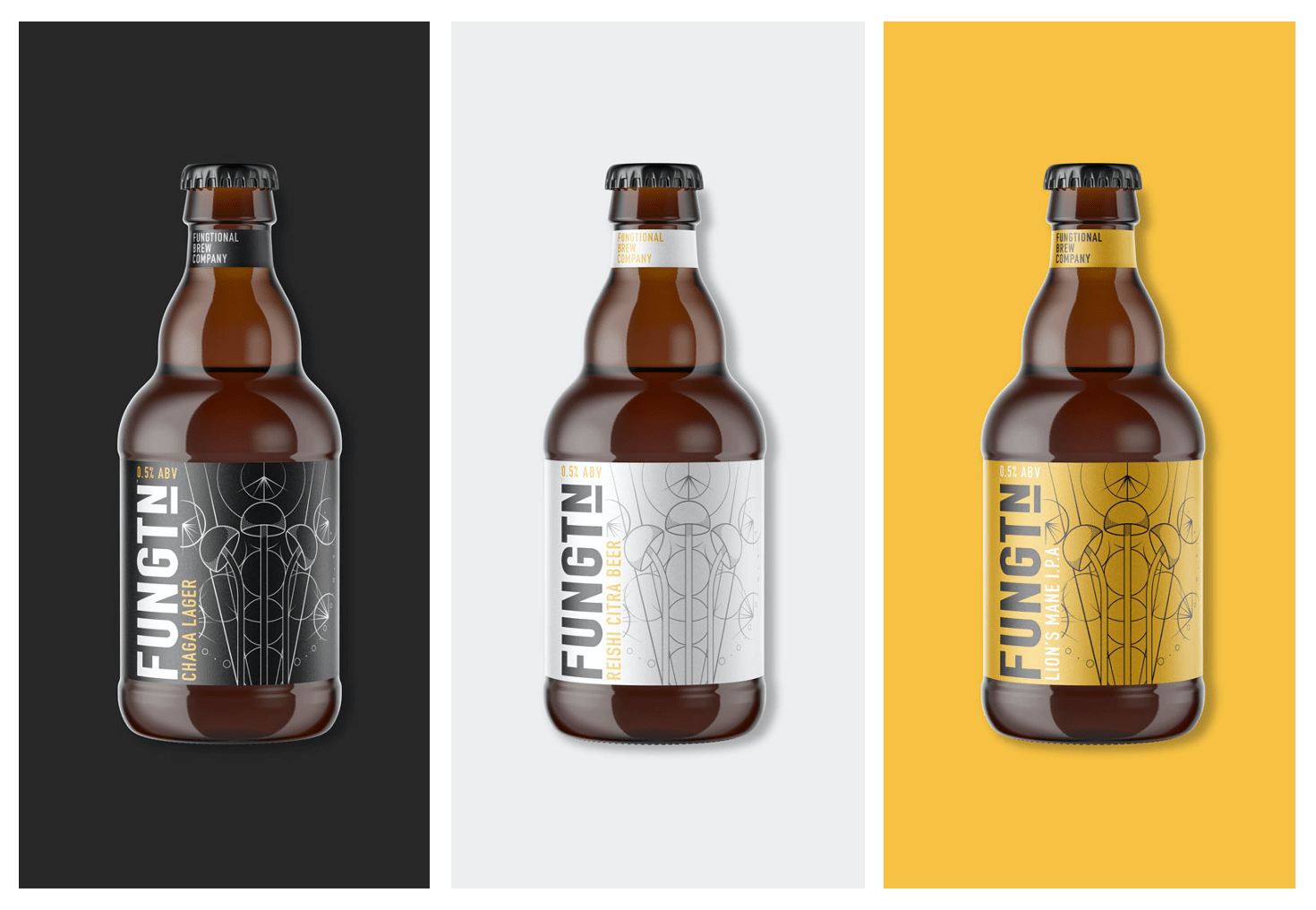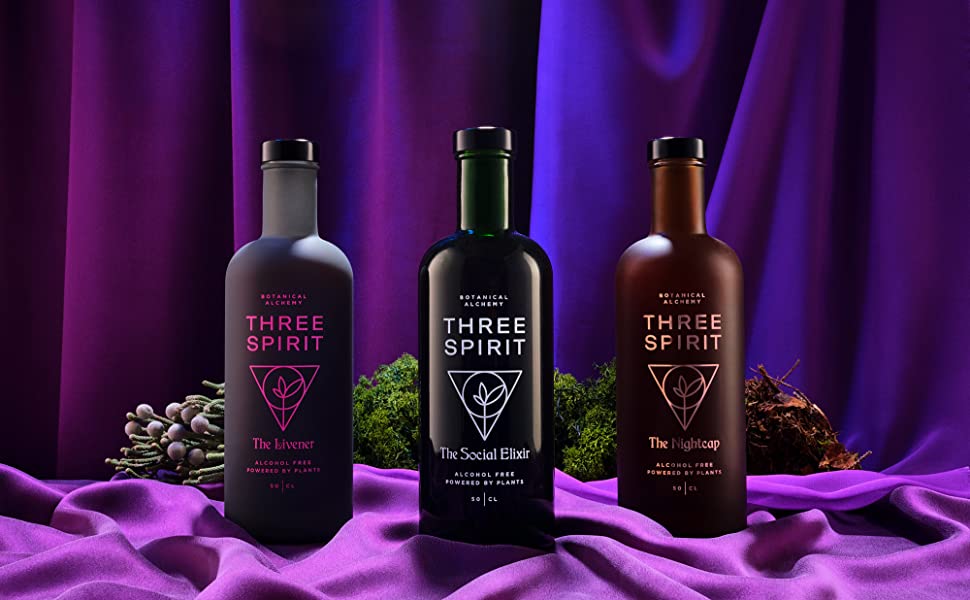What is the New Plant Powered Wellness Trend?
Wellness Drinks are Going Nowhere
We’ve mentioned wellness drinks once or twice this year and that’s for a good reason. They’ve been one of the biggest drinks trends of 2020.
We’ve written a ton of articles on low and no drinks.
If you’ve somehow missed us waxing lyrical about wellness, here’s a quick recap.
An Overview of Wellness Drinks
Wellness drinks have beneficial ingredients that can support and boost health. They’ve grown in popularity as people have become more aware of what they’re putting in their bodies and have searched for natural healthy alternatives to their favourite drinks.
This popularity has been reflected by their availability. You no longer need to hunt them down in your local health food store, you can find them in most supermarkets but also fashion and lifestyle shops like John Lewis, Urban Outfitters, and the Goop Shop.
What’s New in the World of Wellness?
The term ‘wellness drinks’ encompasses a whole range of beverages from kombucha, to coconut water to peppermint tea.
The newest trend we’ve come across is adaptogens.
If that’s a word you’ve never encountered before don’t worry, with the help of Zoey Henderson, founder of the Fungtional Brew Company, we’ve taken a deep dive into the world of adaptogens.
Keep reading to find out all there is to know.

What are Zoey’s Credentials?
The first adaptogen introduced to Zoey, though she didn’t realise what it was at the time, was ginger. As a child, her mum would give her hot lemon and ginger tea for coughs and colds.
As an adult, Zoey has integrated adaptogens more actively into her diet whilst doing research on what they are and how to use them.
Zoey has worked in the food and drink industry for several years. Her first business was a juice bar where she enjoyed developing the food menu and coming up with unique dishes like acai porridge (before acai was a thing!). This sparked her interest in superfoods and looking at how what we eat affects us.
After studying for her Diploma in Naturopathic Nutrition, she knew a product was the right way for her to use her knowledge. Combining the positive benefits she’d learnt about with the social ceremony that surrounds sharing a drink. Alcohol-free beer and her favourite adaptogen; medicinal mushrooms were the perfect partnership for her new range.
Lockdown has been a really tough time for the industry, but it gave Zoey the time and space to work on setting up the Fungtional Brew company and their launch range Fungtn which is on the market now.
What are Adaptogens?
Zoey describes adaptogens as plants and herbs that contain powerful compounds that help your body’s ability to deal with, or adapt to, stressors.
They have the following characteristics:
1. They’re non-toxic.
2. They’re non-specific in their properties. They adapt to the specific needs of the body and will work slightly differently for everyone who takes them. Hence why they’re called adaptogens.
3. They support homeostasis.
Adaptogens shouldn’t be relied upon as a substitute for sleep or a miracle cure, but they can be used alongside nutrition and lifestyle choices to improve general health.

The History of Adaptogens
The term ‘adaptogen’ was first recorded in 1947 by N. V. Lazarev to describe a substance that increased resistance to stress. It was adopted by the Soviet Union who used it to refer to remedies thought to increase the resistance of organisms to biological stress.
Though they only acquired the name adaptogens in the last 100 years, these plants have a long history of being used as herbal remedies, especially in the East.
Types of Adaptogens
There are many different types of adaptogens, but these are a few of the most common.
Reishi Mushrooms
Helps boost your immune system and improve sleep.
Ashwagandha
Reduces anxiety and helps sleep.
Siberian Ginseng
Improves mental and physical performance with energy, immunity, and fatigue-fighting properties.
Tulsi/Holy Basil
Commonly used for reducing cold symptoms. It’s also good for calming busy minds.

How do Adaptogens Work?
The science behind adaptogens can be a bit confusing, fortunately, Zoey was able to give us an overview of how they work.
‘Adaptogens help support your natural homeostatic levels and ensure that internal systems are functioning at their optimum. Their effect on the immune system is a great example of this, where adaptogens help support natural equilibrium. You’re not bringing more bouncers to the club you’re just beefing up and better training the ones you have.’
Advocates of adaptogens claim that by replenishing our deeper immunity and regulating stress response, adaptogens can do the following things.
• Improve overall wellbeing
• Increase energy
• Optimise organ function
• Reduce stress response
• Increase inner strength
• Improve blood sugar levels
• Improve cholesterol rations
Can Adaptogens Deliver what they Promise?
If you think they sound too good to be true, you’re not alone. There’s conflicting evidence on whether adaptogens can do all the wonderful things they promise.

For Adaptogens
Studies on animals and isolated neuronal cells have revealed that adaptogens exhibit neuroprotective, anti-fatigue, and CNS (Central Nervous System) stimulating activity.
Moreover, several clinical trials have demonstrated that adaptogens exert an anti-fatigue effect that increases mental work capacity against a background of stress and fatigue.
However, most studies of these studies agree more research is needed and it’s not certain that adaptogens will work the same way in humans as they do in single cells.
Against Adaptogens
A 2008 study by the European Medicines Agency concluded that research studies that had previously been conducted into adaptogens had been deficient in their methods and therefore there was not enough evidence to prove that they work as their proponents claim and the term ‘adaptogen’ is not allowed to be used in medicinal marketing in the EU.
The studies referred to in the report were mostly carried out in the former Soviet Union, South Korea, and China before the 1980s. Though, there have been plenty of studies since, the lack of larger, substantive studies has prevented adaptogens from gaining acceptance in the established medical community.
A Balanced View
It would be rash to dismiss adaptogens completely out of hand. A lot of modern drugs were originally derived from plants which shows there is a precedent for looking to nature for remedies.
However, just because adaptogens have a long history in medicine does not necessarily mean they are effective. Many popular historical have been proven to be ineffective. For example, you’d be hard-pressed to find a doctor who would recommend putting a dead frog in the throat to treat asthma but this was a common cure in the Tudor Era.
As with a lot of herbal medicine, scepticism over the effectiveness of adaptogens is likely to remain until larger clinical studies are carried out.

Ask the Expert
Zoey says ‘the term adaptogens has been given to a select number of herbs and fungi that have been used in TCM, Ayurvedic and traditional medicines for thousands of years. Their efficacy, whether partly placebo or not, has shown time after time to have positive effects on the patients and the ailments they were treating. As science has joined ancient wisdom we can now isolate and identify the compounds that are the reasons for their uses.
The fact they are not ’pharmaceutically’ approved casts doubt on their efficacy. However, this I feel says more about our chemical dependence and big pharma business-driven approach to modern medicine rather proven discreditation in natural remedies.’
What’s the Best Way to Try Adaptogens?
You can take adaptogens as herbal supplements in capsule form, added to smoothies as posers or brewed into teas. And now you can even get them in beers and spirits.
Which Companies are Selling Adaptogenic Drinks?

Fungtn
Zoey started the Fungtional Brew Company from a belief in positive wellness, helping you make more mindful choices without compromising in taste or experience.
She says ‘we wanted beers to complement daily routine, using ancient, healing adaptogens in a modern context. Mycoadaptogens are a unique class of medicinal mushrooms used in functional medicine and wellness for thousands of years. Their complex, delicate flavour means they blend well into drinks especially into our modern-day beer pallet. We wanted to go past just removing the alcohol for a more mindful beer. No, they are not magic, and no your beer won’t taste like mushroom, but they will help keep your mind and body on good form. ‘
Their three beers; Chaga Lager, Lion’s Maine IPA, and Reishi Citra Beer are all 0.5% ABV and available here.

Three Spirit
Three spirit is a non-alcoholic spirit and is one of the brands featured in our best of No and Low guide. Their drinks are based on alchemy. They combine plants used for centuries in ceremonies and potions to stimulate the palate, mind, and body.
They have three different spirits: Livener, social Elixir and Nightcap that all claim to have different effects on your mood and contain some common adaptogens.
Three Spirit is available here.

Pukka
Tea is one of the traditional forms in which adaptogens are consumed. Herbal brand Pukka includes adaptogens in the many herbs they brew their teas with.
Pukka aims to connect people to the beauty and power of nature through their herbal creations. They passionately believe there is much to learn from the marriage of scientific research and traditional healing.
They spread their knowledge both through their products and their website which contains articles and recipes promoting herbal knowledge and wellness.
Find out more here.
Will Adaptogens be the Next Big Trend in Wellness Drinking?
As Zoey says ‘consumers are becoming more conscious and concerns over health and wellness are dominating decision making. Lowering alcohol, sugar and looking for healthy alternatives to everyday treats, people are wanting to take their health into their own hands and an easy way to do this is via what you are eating and imbibing.’
And we couldn’t have put it better ourselves.
So, the jury may still be out about the effectiveness of adaptogens, but we still predict that number of adaptogenic drinks will rise in the next few years as the wellness category continues to grow.
Share
Get In Touch With Our Team
Speak To One Of Our Team Today Get in touch
